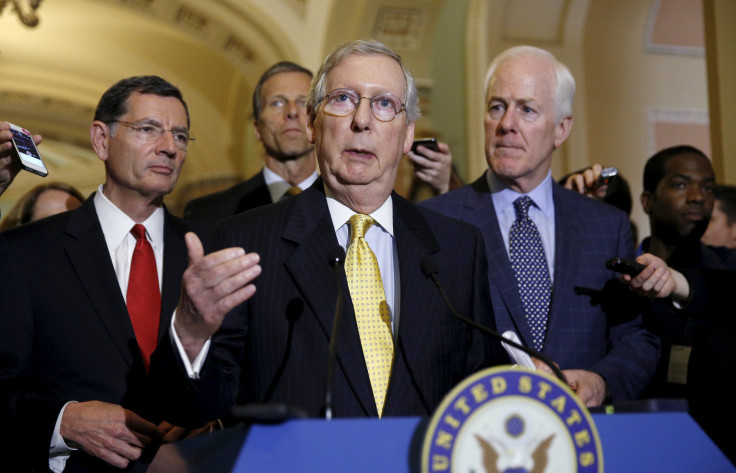Senate Budget Agreement Narrowly Passes, All 46 Democrats Oppose

The Republican-led U.S. Senate narrowly passed a budget plan Tuesday that earlier passed the House of Representatives, making for the first joint House-Senate budget design to pass since the Democrats did so in 2009. The budget doesn’t actually contain any legislation that would cut or boost funding for programs but instead sets the overall levels for the fiscal year 2016, beginning in October. It also sets a longer-term vision for spending.
The budget passed 51-46, with all 46 Democratic senators voting no. In short, it calls for a boost of more than $38 billion in defense spending, a continuation of the sequester cuts and ultimately a repeal of the Affordable Care Act, or Obamacare. The budget sets out plans to cut the deficit by slashing $5.3 trillion in spending between fiscal year 2016 and fiscal year 2025. It’s the first time since 2005 that a Republican-controlled Congress has passed a joint budget.
Cuts in domestic government programs would make up the bulk of the spending reductions. Democrats criticized the plan as hurtful to working-class families and beneficial only for higher-income earners, who wouldn’t see a tax increase. Presidential candidate Sen. Bernie Sanders, I-Vt., called the spending plan “an absolute disaster for the working families” in the country.
“In fact, one of the problems that I have had in describing the Republican budget is that it is so bad ... that people don't even really believe you when you talk about what is in this budget,” Sanders said, according to the Associated Press.
Republican leaders had to negotiate a compromise between their party’s defense hawks and its penny-pinching camp. Ultimately, an initiative to award $90 billion in sequester-exempt funding to the Pentagon showed that the pro-defense spending Republicans won at least one battle. That means that money cannot be cut as part of the automatic cuts made to bring actual spending in line with the budget.
President Barack Obama has already publicly opposed just about every measure in the budget plan. In March, he said he would veto any bill that maintained the sequester cuts and boosted defense spending but didn’t boost nondefense spending. Republican leaders have said they want to negotiate a better way to cut spending and do away with sequestration, which can disproportionately cut funding from certain programs.
© Copyright IBTimes 2024. All rights reserved.






















